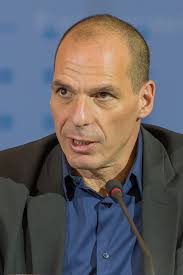The Influence of Yanis Varoufakis on Modern Economics

Introduction
Yanis Varoufakis, a prominent Greek economist and politician, has become a significant figure in the landscape of modern European economics. His rise to international prominence coincided with the Greek debt crisis, where he served as Greece’s Minister of Finance in 2015. Varoufakis has since been a vocal advocate for economic reforms and democratic practices in the European Union, using his platform to highlight issues of austerity and fiscal policy.
Background and Political Journey
Born in 1961 in Athens, Varoufakis pursued his education in economics, earning degrees from the University of Essex and the University of Birmingham. He gained experience in both academia and as a consultant in the tech industry, which shaped his insights into the economic policies that govern modern society. His political career gained traction during the Syriza party’s rise to power, as he aimed to eradicate austerity measures forced upon Greece by international lenders.
Key Contributions and Ideologies
During his tenure as Minister of Finance, Varoufakis became known for his unconventional approach to economic negotiations, famously advocating for a more progressive and humane fiscal approach. He introduced the concept of a ‘European New Deal’ aimed at alleviating economic suffering across Europe. He has been critical of the EU’s economic framework, which he argues prioritises debt repayment over social welfare. Varoufakis has consistently argued for reforms that would allow nations greater autonomy in their economic decision-making.
Recent Developments
Following his resignation from the Greek government, Varoufakis has remained active in politics and academia. He founded the MeRA25 party, which continues to advocate for economic reforms both in Greece and throughout Europe. In 2023, he gained renewed attention by participating in discussions regarding the future of the Eurozone, in light of ongoing economic challenges exacerbated by the COVID-19 pandemic and inflationary pressures.
Conclusion
The significance of Yanis Varoufakis in economic discussions extends beyond Greece, as his ideas resonate with current debates on austerity and fiscal policy in Europe. His commitment to reforming the EU’s economic framework and advocating for a fairer society underscores the ongoing struggles faced by many nations in a post-pandemic world. As economic conditions evolve, Varoufakis’s voice will likely remain an influential one, guiding future dialogues on the path towards sustainable economic practices.








